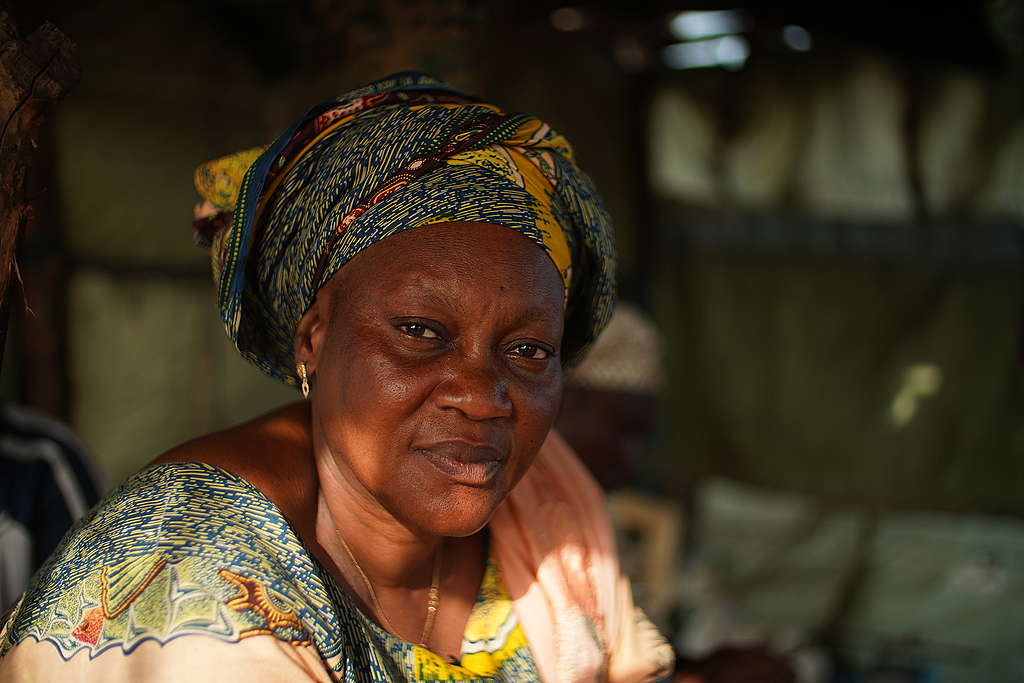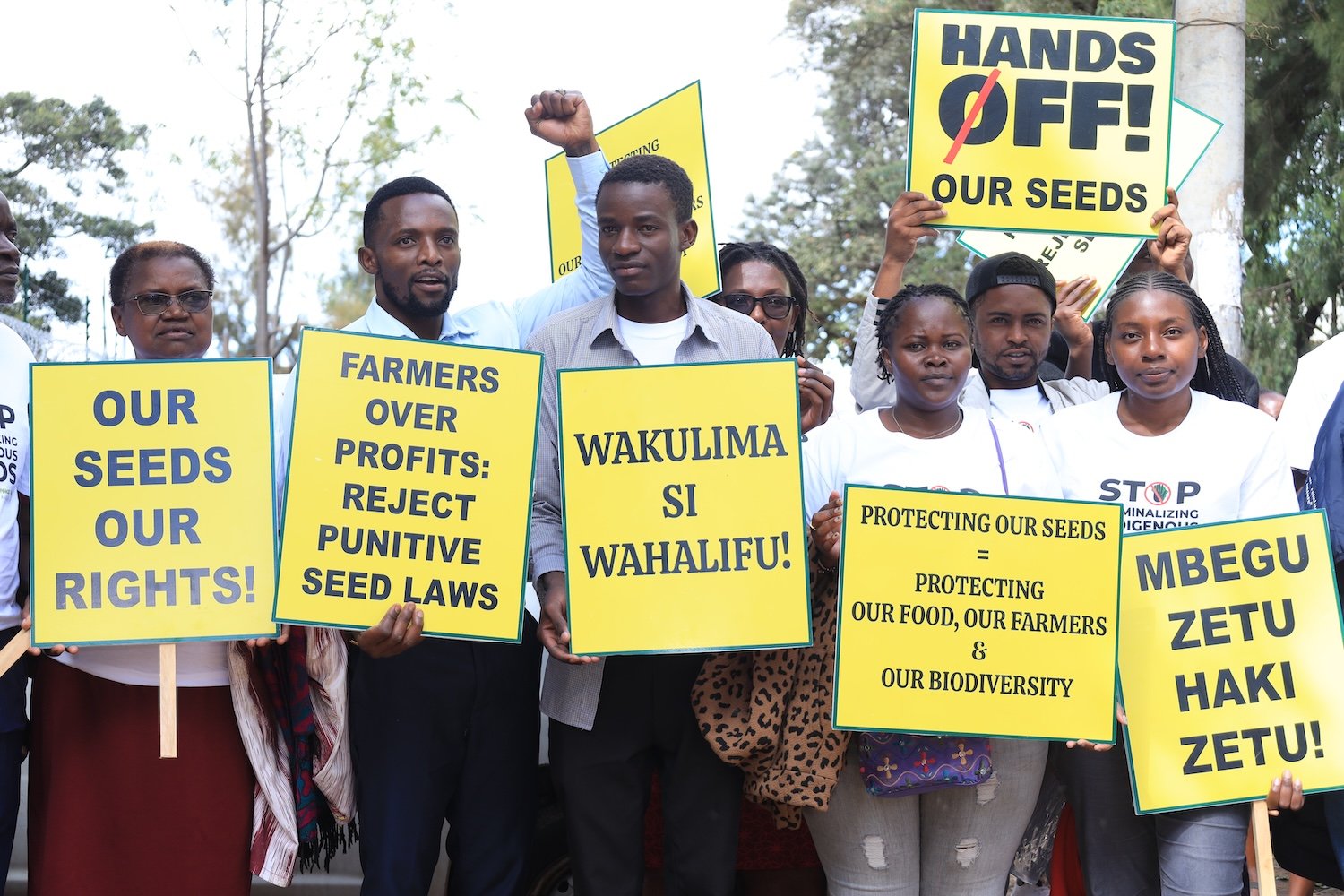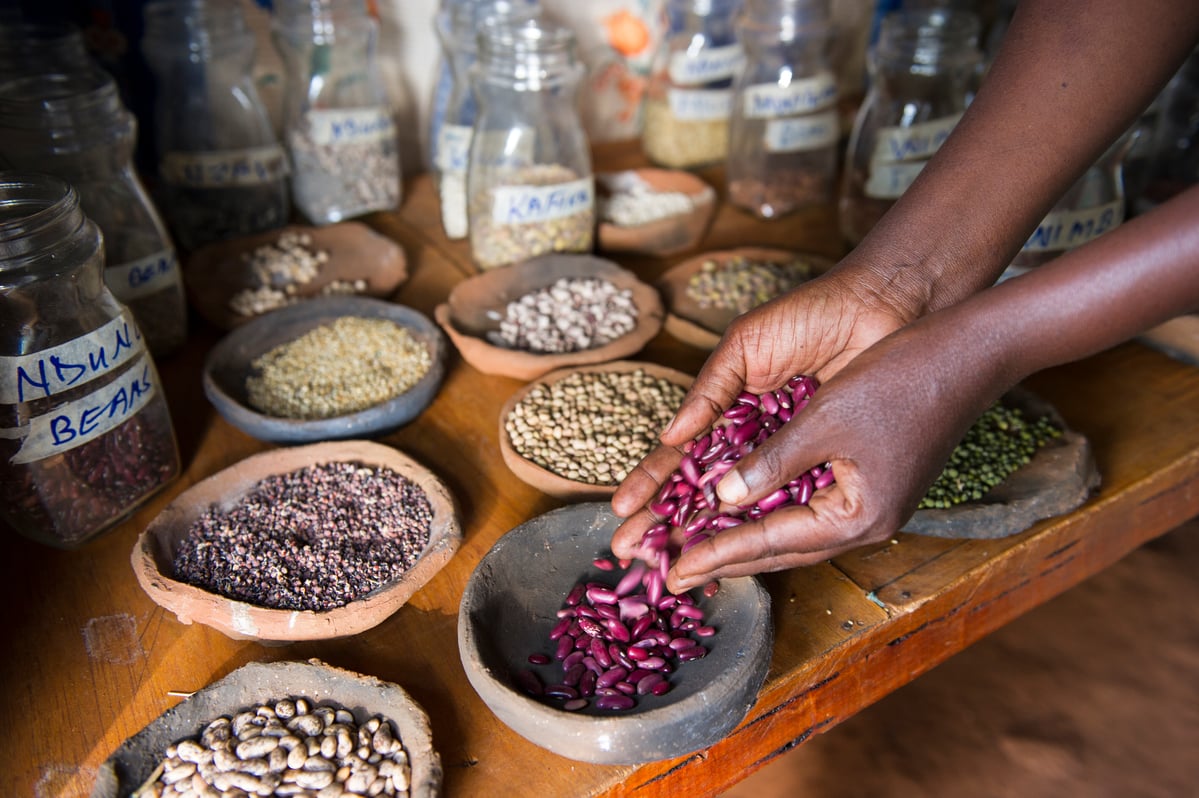Dakar, Senegal, 8 March 2020 – On International Women’s Day, opinion leading women and activists from the continent and Greenpeace Africa, stand united with a rapidly growing movement of female fish processors in West Africa. Women fish processors appealed to women worldwide to join the newly launched global act online and this way support their urgent call for a shutdown of fishmeal and fish oil factories threatening the livelihood and food security of up to 40 million African people. [1]
“The state must force the fishmeal and fish oil factories not to buy fish for processing for industrial aquaculture and livestock feed. This fish is needed by those who live in Senegal and the West African region as a source of food and livelihoods,” said Fatou Samba, the president of female fish processors from Khelcom processing site in Bargny, Senegal. She has been working to call on the government to stop the expansion of the fishmeal and fish oil industries.
“On behalf of 40 million people in West Africa, female fish processors are at the forefront of a battle for basic rights like access to food, jobs and a healthy sea. Today, when celebrating International Women’s Day, we appeal to people worldwide to support our efforts”, said Diaba Diop, President of the group of women fish processors of the Thiaroye site in Senegal.
The expanding fishmeal and fish oil industry in West Africa is scooping up and processing enormous volumes of fresh fish, sending the end product off to Europe and Asia as feed for the aquaculture industry, as well as for chickens, pigs and even pets. Fish make out a vital protein source for people in West Africa and fishmeal and fish oil factories are disturbing this important food source. Fish is the first source of protein for the Senegalese population [2]
“Before the fishmeal factory, we were doing very well. Now we no longer have access to fish. We are working hard, but we don’t do very well. We cannot handle being in such a tough competition with fishmeal factories,” said Maimouna Sabaly, fish processor in Joal, Senegal.
Protecting the female processing profession is vital given the highly important role they are playing in the education of children, social stability of families, the health of the population, food security, and creation of jobs. Abdoulaye Ndiaye Greenpeace Africa campaigner therefore calls on the senegalese government to stop the granting of permits for new fishmeal plants and take measures to close down existing plants.
In recent decades, fish stocks in West Africa have been pushed to their brink by overfishing [3]. Yet governments in the region have given their green light to a fishmeal and fish oil industry, that leaves very little for human consumption, enhances overfishing and drives up fish prices on the local markets. Consequently fish have become even more scarce, and large numbers of female fish processors are starting to lose their jobs to this unfair and impossible competition with a giant industry.
“The priority of West African governments and fisheries authorities should not be the fishmeal and fish oil industry but the professionalisation of small-scale women fish processors. In particular there is a need to introduce professional status and help fish processors improve their products to gain more valuable market access”, added Diaba Diop, President of the group of women fish processors of the Thiaroye site.
In recent years, fishmeal and fish oil factories have been expanding all over Senegal including in the towns of Gandiole, Cayar, Mbour, Joal, Kafountine and more. According to local populations, these factories are causing a wide range of serious environmental issues such as maritime pollution, destruction of agricultural lands and pastures, and are also the source of unbearable odours that local communities living close to the factories say harm their health.
“It’s time for West African governments to draw the line for fishmeal and fish oil factories scooping up enormous volumes of fresh fish while putting at risk the health of vital fish stocks, food security and jobs for millions of people in the region“, concluded Abdoulaye Ndiaye Campaigner Greenpeace.
Media Contact:
- Tal Harris, International Communications Coordinator, Greenpeace Africa, Email: [email protected] Mobile +221 774643195
- Abdoulaye NDIAYE Campaigner Greenpeace Africa Email: [email protected] Mobile: +221 77 632 76 94
- Greenpeace Africa Newsdesk: [email protected]
Notes:
[1]Globally, International Women’s Day is celebrating women all over the world. To celebrate and strengthen West African female fish processors in their fight against fishmeal and fish oil factories, Greenpeace launched a global act of solidarity and asked for the World to Stand 4 Women in West Africa.
[2] file:///Users/afr-sen-cmps02/Desktop/FAO%20consommation%20poisson.pdf[3] https://www.odi.org/sites/odi.org.uk/files/resource-documents/10665.pdf




